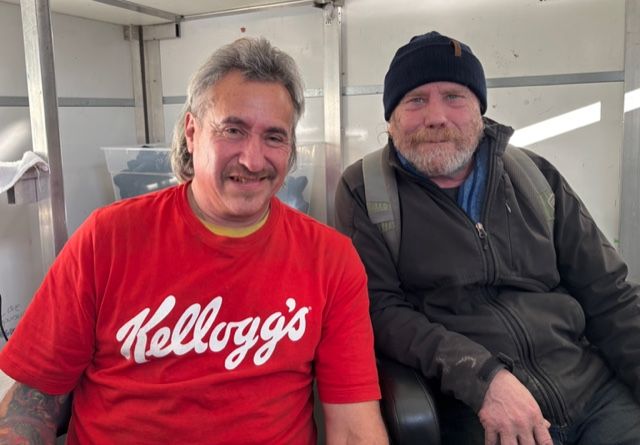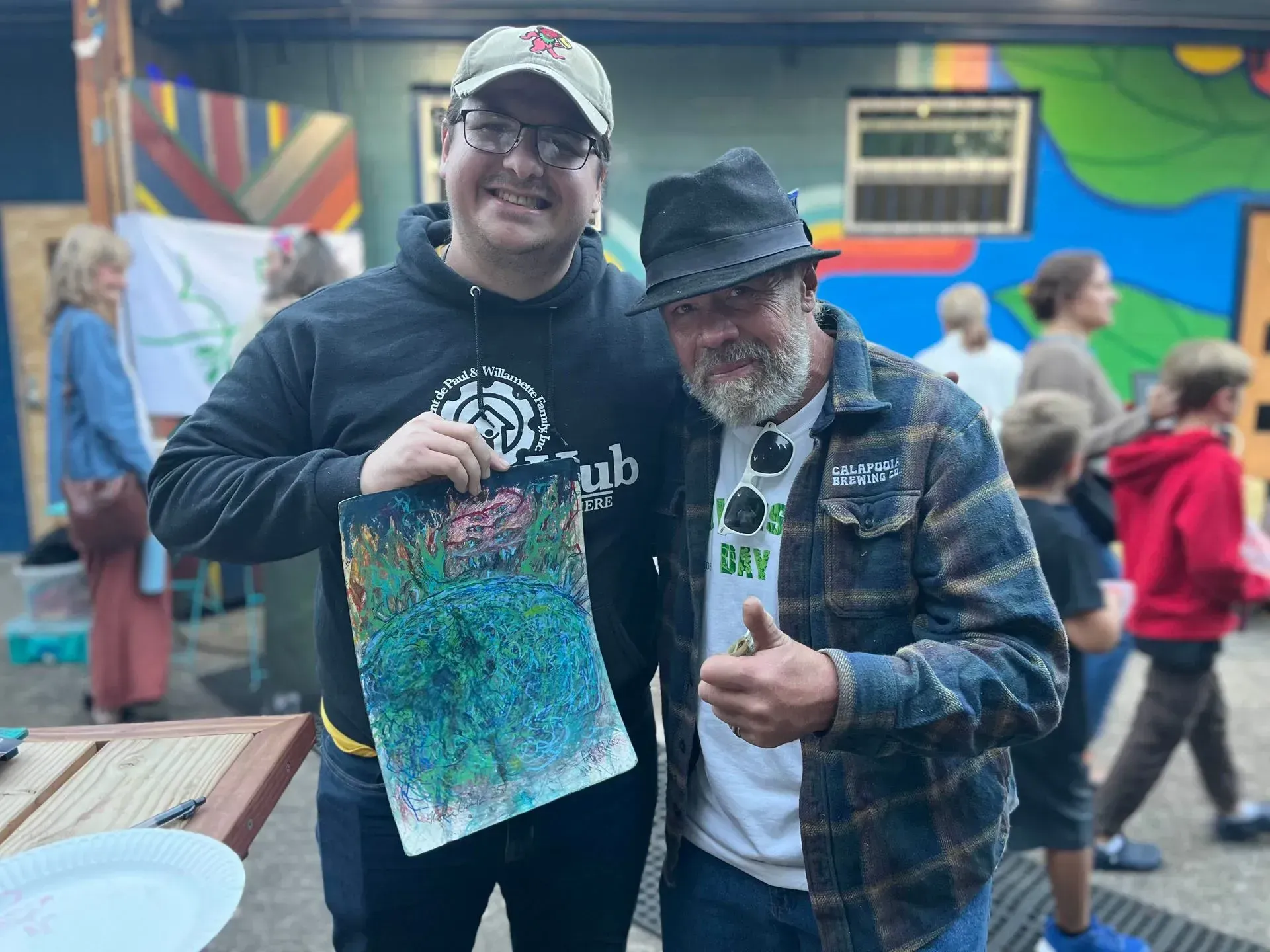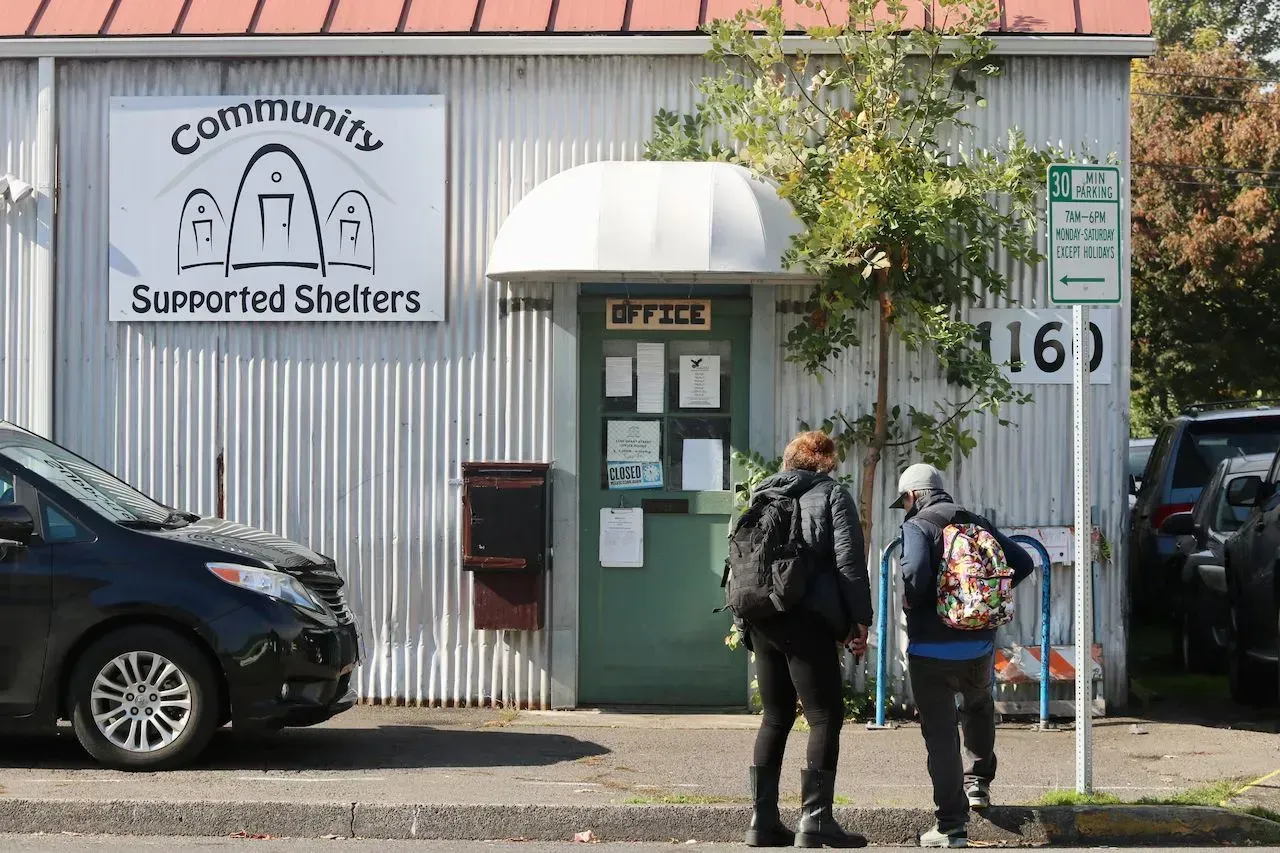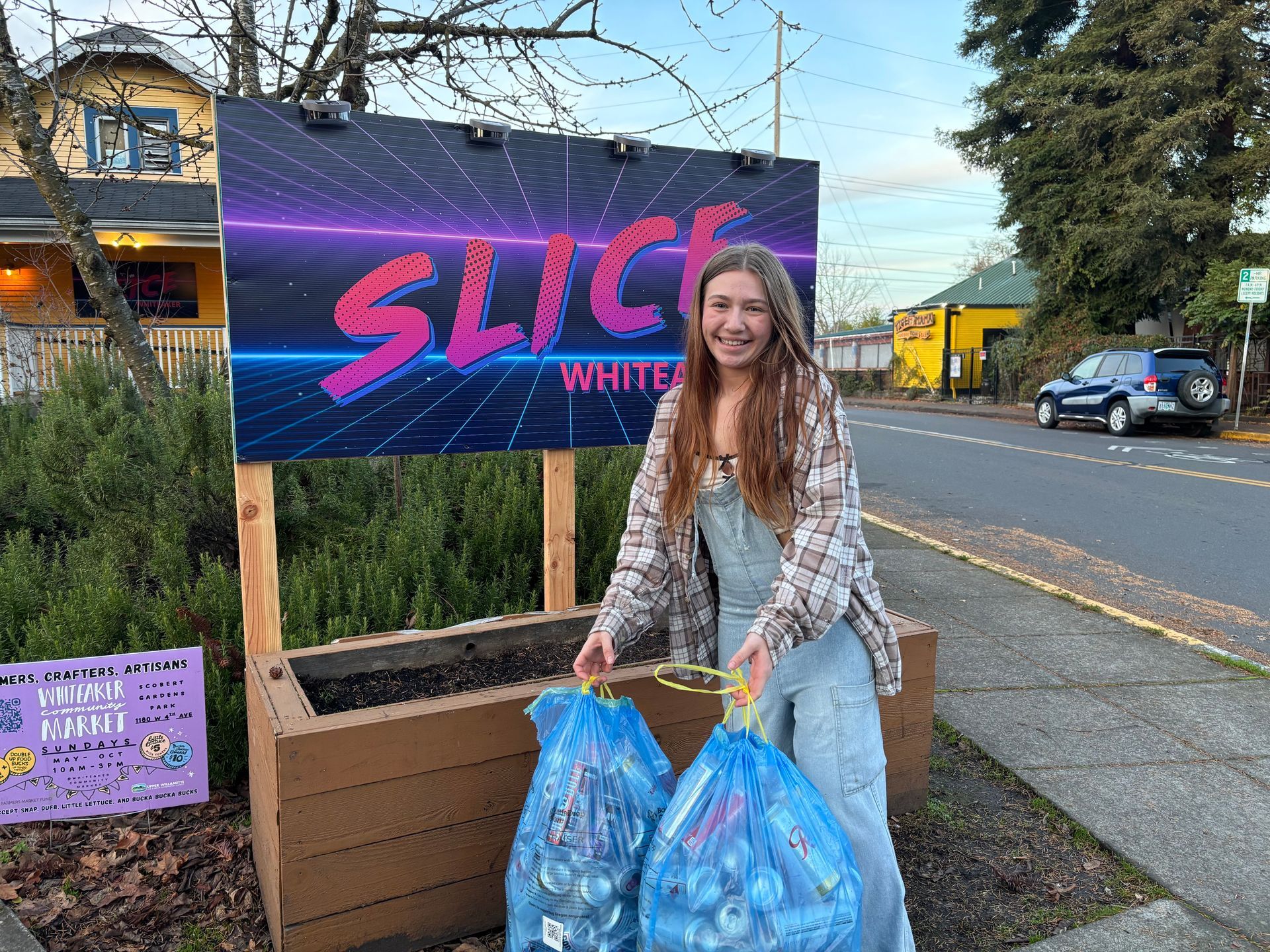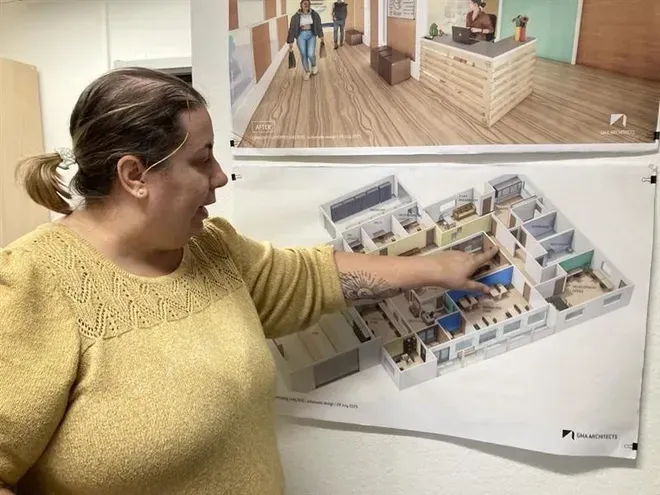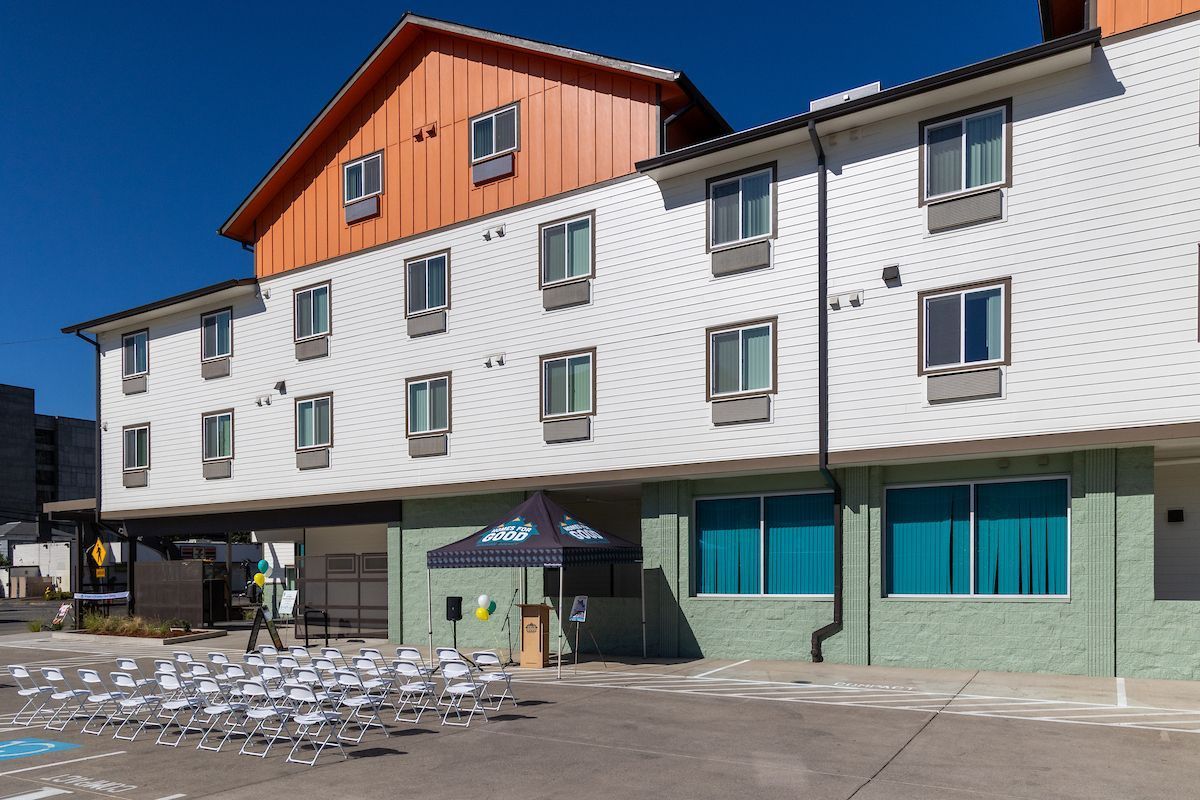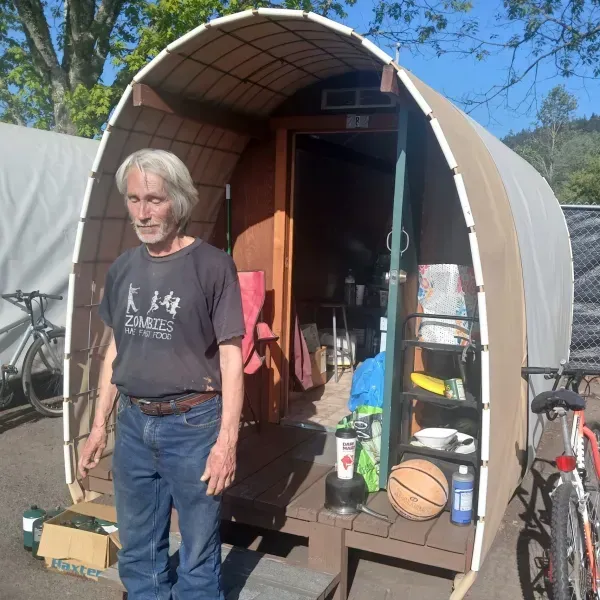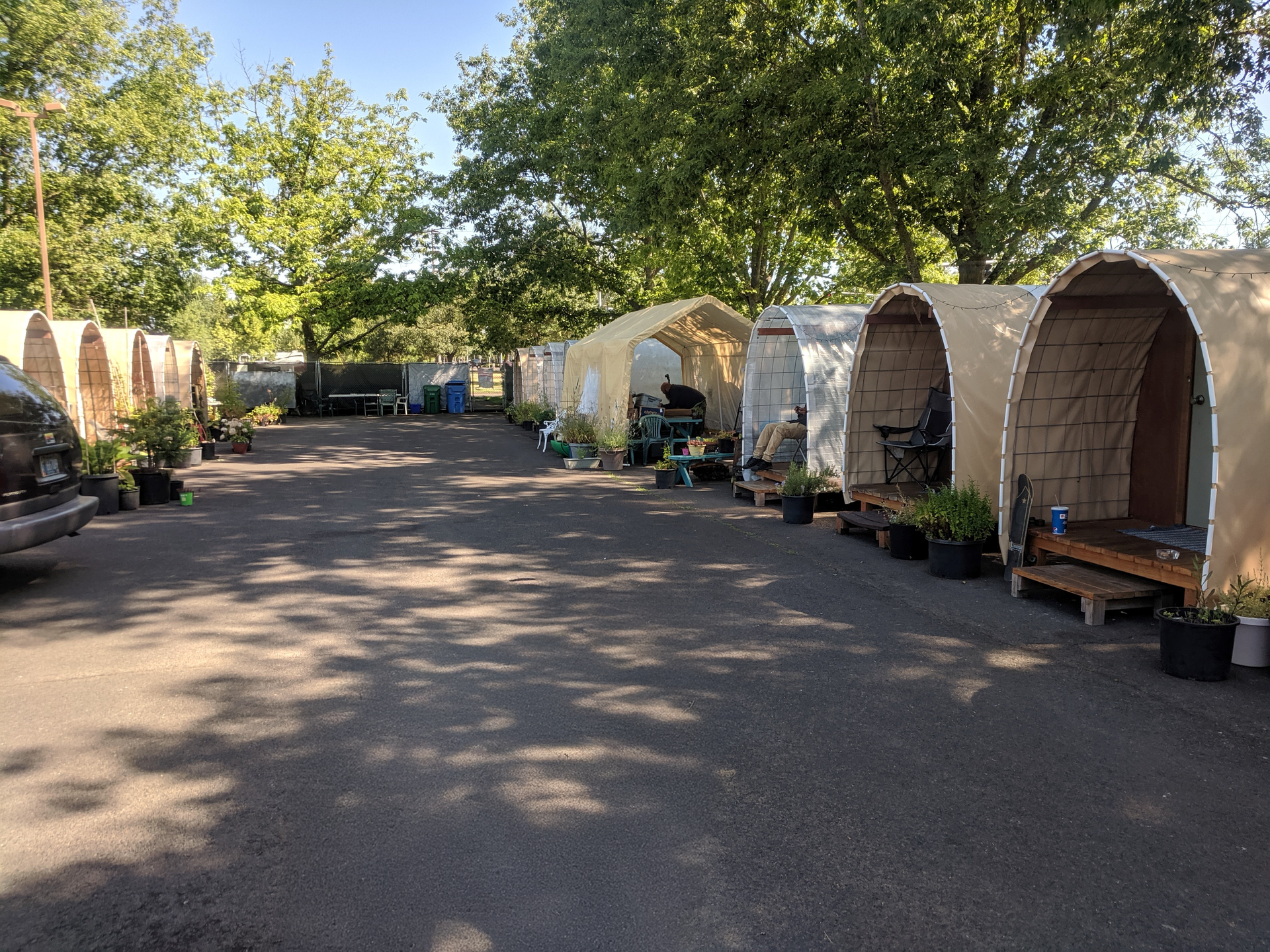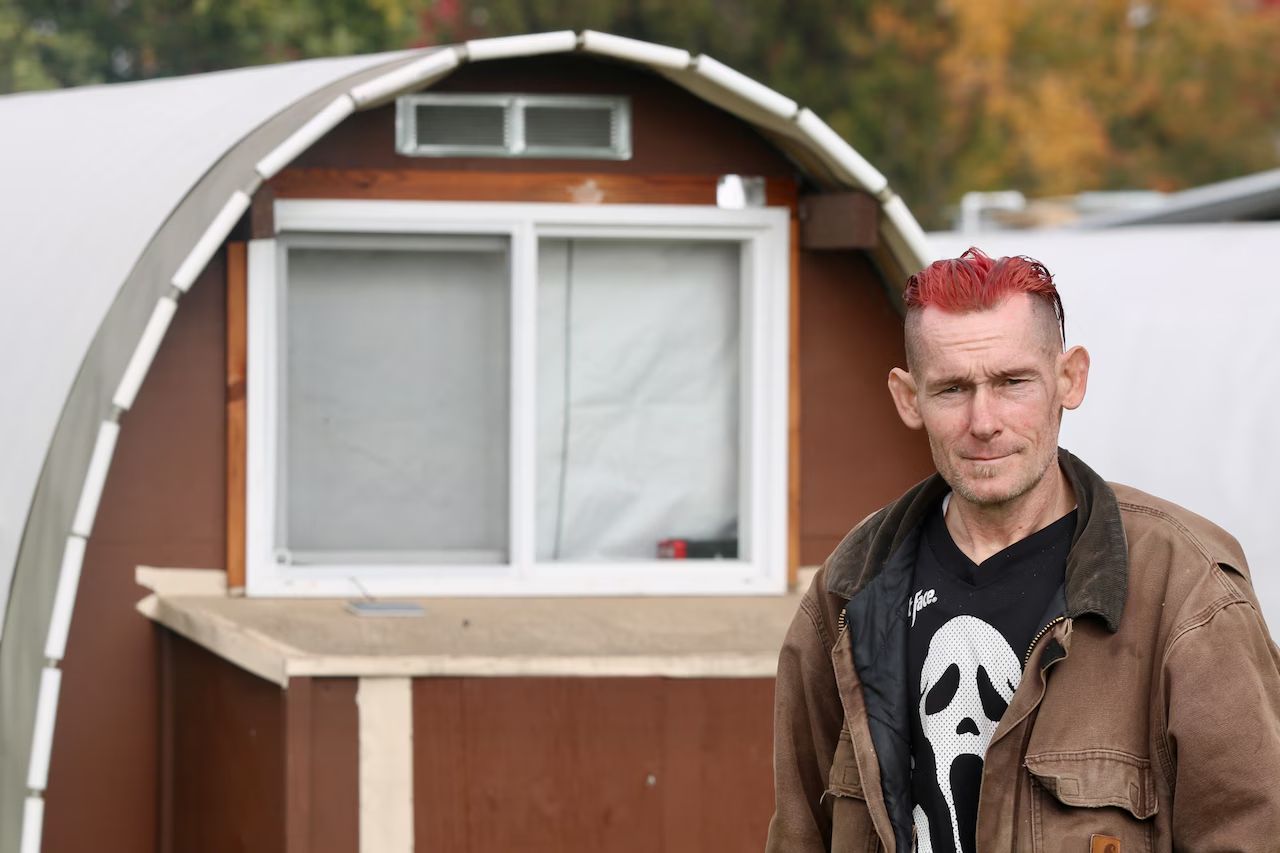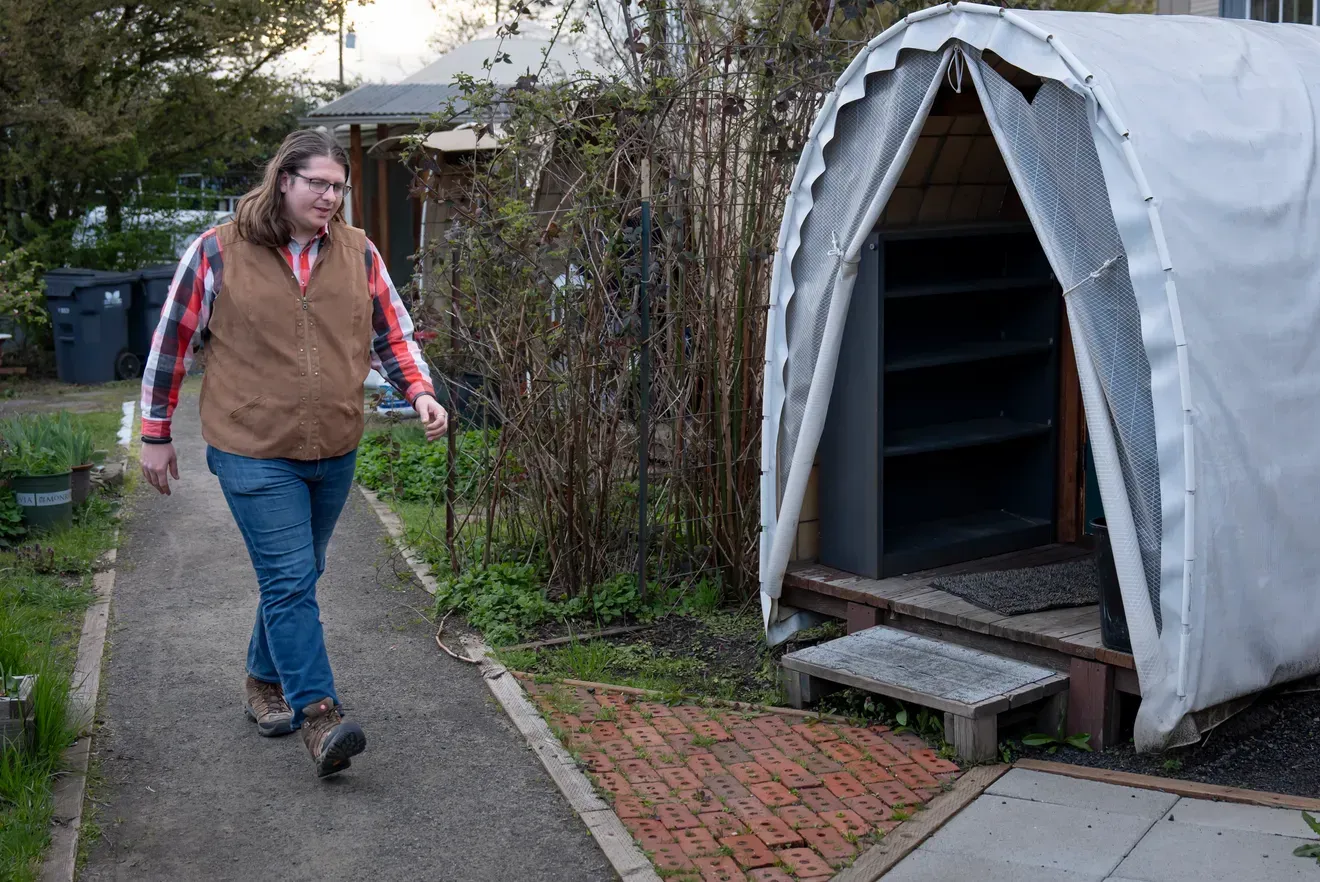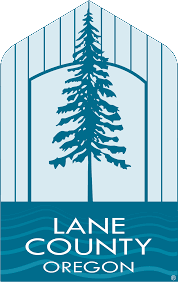Leadership Team Brings Shared CSS Values to New Challenges and Opportunities
April 14, 2023

With the mid-March hire of Tabitha Eck as Director of Operations, the Community Supported Shelters leadership team is up to full strength. Karissa Moden, Director of Community Impact, and Heather Quaas-Annsa, Director of Philanthropy, have been in their roles for just over a year. Tabitha fills the role formerly held by Erik de Buhr, the CSS co-founder who retired at the end of December.
Karissa joined CSS as Volunteer Coordinator in 2021 in the middle of the expansion during which CSS grew from 5 communities to 14. Heather joined later that year with the same title she has now but with a narrower focus on fund-raising activities.
The current shared leadership approach grew out of many conversations among Erik, Karissa, Heather, and then–Executive Director Tod Schneider, as the growth and ever-broadening mission of CSS seemed to call for more diverse expertise and disbursed responsibility.
“The organization actually started with shared leadership,” says Karissa. Erik and co-founder Kristin Fay de Buhr led the organization through its dynamic and rapidly growing earlier years. When Kristin Fay stepped back from a leadership role, the responsibility fell to Erik. He knew that was not sustainable, so CSS moved to an executive-director model. But the ongoing effects of the ”COVID mayhem” and the expansion—as well as Erik’s desire to transition out of a leadership role—led to the new team management approach.
“I think Erik felt very passionate about bringing the organization back to a shared leadership model in a new way,” Karissa says.
Karissa has a master’s degree in social work and valuable experience working with Sisters of the Road, a Portland nonprofit providing street-level service and doing advocacy work with the unhoused. “Sisters of the Road has such beautiful, deep roots within a philosophy of dignity, nonviolence, and gentle personalism,” Karissa says. “These things really deeply inspired me to be the person I am.”
After Sisters of the Road, Karissa took some time to travel with their partner, Seth, and then moved to Eugene just as COVID was locking things down. Karissa worked a variety of service and educational jobs before they answered the ad for CSS’s Volunteer Coordinator.
Heather was on both sides of Eugene’s social safety net. She set up a donation barrel for Food for Lane County at her son Elijah’s first birthday party (14 years ago) “because the kid didn’t really need anything.” Two years later after a messy divorce from an abusive spouse, she says, “I had to rely on the support of my community, from various nonprofits in the area, to prevent myself from becoming homeless.”
She went on to become a volunteer advocate for some of those same nonprofits, such as United Way of Lane County and the Relief Nursery. After rebuilding her life and obtaining her master’s degree in business, Heather became the paralegal for the PeaceHealth Oregon Foundations. “I sort of jumped on that opportunity because it got my foot in the door because I wanted to start working for a nonprofit.” She eventually became the Executive Director for the PeaceHealth Peace Harbor Medical Center Foundation in Florence.
Tabitha worked at St. Vincent dePaul in Eugene as Director of Community Engagement for the past year and a half. Before that, she served in a variety of roles over seven years at the Eugene Mission, the last one being Director of Operations. A life-long resident of Lane County (“from Veneta to Vida,” she says), in 2006, she bought a restaurant (Our Daily Bread) with her parents that is still going strong. After that, she worked in marketing full-time. During that time, her husband, Marshall, whom she met at the family’s restaurant, took a job as the Kitchen Director at the Eugene Mission. Tabitha started volunteering on holidays. That experience altered her career path.
“I found such meaning in nonprofit work that isn’t as easy to find in the private sector,” she says. “It really engages the heartstrings. You can see your efforts going towards bettering humanity or the planet or your community, not necessarily a business’s bottom line. Even though in my marketing years, I was selling things that I believed in, selling a bottle of juice is not the same as selling a cause to the community.”
In addition to their common commitment to nonprofit service, the three Directors share a devotion to family as a central part of their lives. That’s about to take on a new meaning for Karissa, who is due to have their first child June 6.
At the heart of shared leadership, Karissa says, is “understanding how diverse this organization is, how many parts we have, and how well they need to all work together.” Those parts now include building and maintaining the infrastructure of the communities, providing the necessary services and support for clients that make Safe Spots communities and not warehouses for the unhoused, and the critical outreach to the public and governmental and private organizations for volunteers, funding, and advocacy.
“We talk about creating intentional community,” Heather says, “and that’s what this whole organization is about. We trust one another and we can be vulnerable with one another and it’s different from any work place I’ve ever been in. I can be my true authentic self and make mistakes and share my goofiness and just be who I am.” Shared leadership also provides a space for the directors to contribute knowledge and experience from their varied backgrounds without the pressure on any one of them to always be right.
“I think a lot of it is about creating a sustainable work experience for the leaders,” Karissa says, “to make decisions that are informed by being able to be closer to the work on the ground and to be able to build in more opportunities for more input from our clients themselves.”
Though this will be Tabitha’s first experience in a shared executive leadership position, it is not unfamiliar territory. “Negotiating, collaboration, and compromise when you’re not The One in charge is ultimately about listening and getting buy-in from all of the parties. So I’ve got a lot of experience doing that. This is a unique opportunity for CSS to grow as an organization in a sustainable way that isn’t based on any one human, in any one seat.”
As Director of Community Impact, Karissa oversees the service teams, which include Community Facilitators, Service Navigators, and Support Workers as well as front desk staff at headquarters.They want to ensure that from “the first person an applicant sees we are creating trust, showing how we are different, doing our best to make people feel welcome.” A big part of their role, Karissa says, is “supporting the fluidity” as clients move from applicants to community members, helping them navigate their experience in the community, and providing ongoing support after they move on. Included in that is helping both staff and community members work through conflict resolution.
Karissa’s role also includes making sure data is available to inform decision-making and to help Heather communicate the impacts of CSS services to potential supporters. They also overlap with Heather in a “beautiful way” in supporting community tours and other educational outreach to the public.
The importance of collaboration among the leadership team is further exemplified by Karissa working with Tabitha, as Director of Operations, to develop staff training strategies in a way that is unified and consistent.
Heather’s title didn’t change, but her role grew. She now oversees public relations, contracts with the city and county, external relationships, and connections to the Board of Directors, as well as fundraising from both donors and foundations. “It’s kind of cool to be able to do this. I understand the budget more thoroughly and I know what the plans are for the next however many years.This definitely helps me to know what we need to raise money for.”
One of her focuses now is consulting with other communities hoping to start similar programs. “We have conversations with groups from Cottage Grove, Oakridge, Florence, and Veneta—and outside Lane County. Community Supported Shelters is a model that can work with any state across the U.S.”
Making sure CSS’s funding is sustainable remains an important part of Heather’s job. “We have a phenomenal donor base of very, very loyal supporters,” she says. “I think that’s because it’s very evident that what we’re doing is helping people.” Government funding is more fickle, she says. “It’s guaranteed through 2024, but that’s not very far away.”
Tabitha is just getting to know the organization and its people, but she has a clear understanding of her role as Operations Director. “My area of stewardship is that of function,” she says. “It’s my job to work with our facilities and Hut teams, as well as HR and finance to build an operational structure that’s going to take us into this next season. We’re moving away from a time where you had founding members who had the culture embedded in them. They knew how to do everything and they trained everyone how to do those things. The founders built the foundation. I see my role as shoring up that foundation and then beginning to build on that base, with the 2X4s, the framing, and ultimately build a structure that can support a roof. It is always my intent to build a system that outlasts any particular human and services the organization in the long term.”
“I am excited to have another director in,” Karissa says, “having a trio again and being able to really work out the kinks of shared leadership.”
One of the biggest challenges CSS faces, Heather says, is the pressure to expand. “Anytime I’m out in the community everybody wants us to grow, especially with the governor’s state of emergency. She wants to add 230 shelter beds in Lane County” (from all providers, not just CSS). “We can maybe add a half dozen of them realistically to what we’re doing. If we grow much bigger, we’re not gonna be able to have intentional communities. It’s just gonna be warehouses. We don’t want to do that. The reason we’re successful is because of the model we have and if we grow too big, the model goes away.”
Focusing on improving the experience of community and staff members is a point of emphasis for all three members of the team. “Instead of building more Huts,” Karissa says, “it’s building more opportunities for our clients themselves to really share how we can be better as an organization, and how their experiences can be improved.”
Tabitha says her primary focus is safety and infrastructure, “making sure that our communities are safe, that we have a safe working environment for our staff, and that all of us are modeling that healthy behavior for that emotional and psychological safety needed both by our residents and by our staff.”
“I see advocacy internally,” Karissa says, “creating opportunities for previous and current clients to give us feedback, regular, meaningful, critical, positive, whatever it might be, feedback on how to continue to be better,” Karissa says.
Another part of that, they say, is building pathways “for these same individuals who have a passion for sharing their experience of being in multiple shelters or being evicted to speak to public policy decision makers in a way that’s going to help them here. It brings me so much joy to think about because I think getting out of the mindset that we know what’s best for people is really where I’ve seen the most change happen.”
Toward that end, Heather says, CSS plans to form a client advocacy council in which members from each of the Safe Spot Communities become a subcommittee of the Board of Directors. “It’s important that we ask for input directly from the people receiving our services.”
The new emphasis on advocacy includes supporters of CSS in the broader community.
A lot of people are curious about what’s going on with unhoused people who potentially might have been their neighbors at one point. “Not in a way that’s punitive about the people experiencing street homelessness, which is horrific,” Karissa says. “That curiosity can help us all change our thinking about homelessness, by asking questions like: How have we gotten to this place over the last 50 years? Why is homelessness continuing to increase? What is it that I can do as a neighbor to stop that from happening? How can I change the conversation I have about homelessness with someone at the grocery store wherever they are coming from?”
Heather adds that another form of advocacy that is vital to CSS is supporters communicating to public policy decision makers that “we need to stop looking at funding more new, new, new things and start looking at ways to ensure the programs that are working are sustainable.”
Tabitha had previous involvement with CSS when she was serving at the Eugene Mission where both the Veterans Safe Spot Community and the Mission Microsite were set up. “Just like every resident we had within our shelter during the COVID shut down, the Vets Community were our people during that season. So I had a special feeling of stewardship of that particular site at that time.”
She notes that both of her most recent employers, St. Vincent de Paul and the Eugene Mission are larger, more long-established organizations, each about 70 years old, compared to CSS, which is celebrating its 10th anniversary this year. “My hope is that I can take the knowledge and experience with the amazing teams I worked with over there and bring that to this team. CSS is in a very pivotal moment, shifting to the next stage of development as a nonprofit.”
“There are a lot of opportunities for us now,” Karissa says. “I’m really excited about us coming together around shared values. Something that I’ve known from day one here is that I love the initiative and gusto that so many people have. It’s in every community, too. When someone has a problem like a broken bike tire or needs help moving something, someone will offer to help: Let me fix that’ or ‘Let me go get the truck.’ There’s just such an attitude of ‘let’s do something about it.’”
That’s Karissa’s approach to the challenges CSS is facing now. “It’s part of my personality,” they say. They approach challenges not as obstacles but as opportunities: “What is it we don’t like? What is it we don’t like about it? How do we want to change it? How do we get there? For me, challenges are—maybe it’s a little sadistic—exciting.”
Heather says her greatest reward in her time at CSS is getting to know different community members and “seeing that progression of someone becoming more comfortable with their surroundings and feeling safe and feeling like it’s okay for them to be vulnerable and share their experiences. When they walk in, they’re just looking for a safe place to sleep, and then after 2,3,4 months with us, they begin to have hope for their future and they’re able to verbalize that. It’s so cool to be a part of that and to help them get to their goals.”
She loves the interaction between community members and guests she brings on tours at the various sites, when the members remind the guests about community rules like closing the lid of the porta-potty or invite them to a barbecue later in the day. “I love little things that remind our guests, that oh, yeah, these are just people.”
“To humanize people that are so often stigmatized in our society—that’s a huge thing in itself,“ she says.
Erik is taking a break from CSS, doing consulting work with other nonprofits and recovering from the high stress of his last few years. He ponders if and when he might want to reconnect. He’s glad to see the shared leadership he helped to implement moving forward—“I think it’s a really great situation,” he says—and his former colleagues implementing it: “It’s in the best hands possible that I could have left it with.”
CSS has grown to the point, Karissa says, that “this organization doesn’t depend on just one person—me, Erik, Heather, or any other one person. I hope my work here reminds people how powerful they are as a staff. We need all of us.”
News & Events
To stay connected to CSS, subscribe to our quarterly newsletter. If you are a member of the media who is seeking info, contact
community@cssoregon.org.
